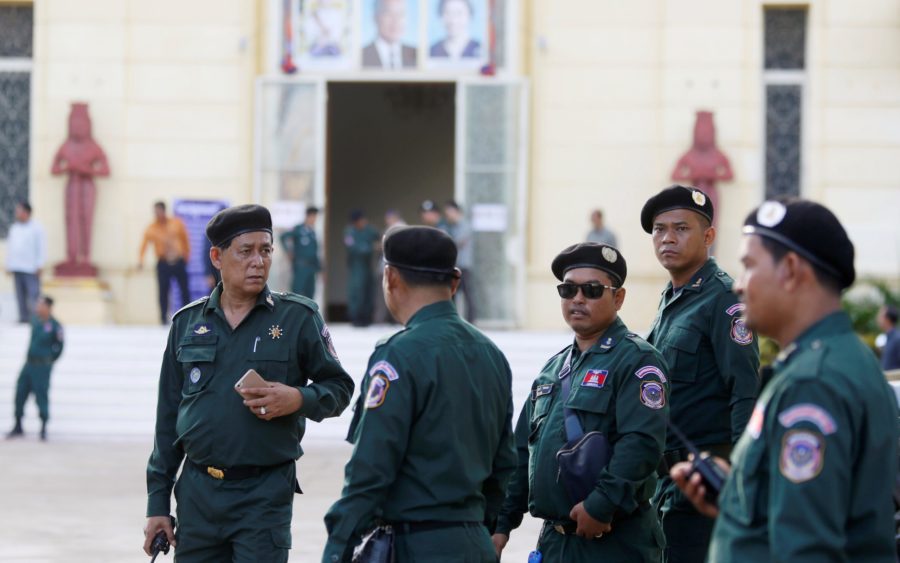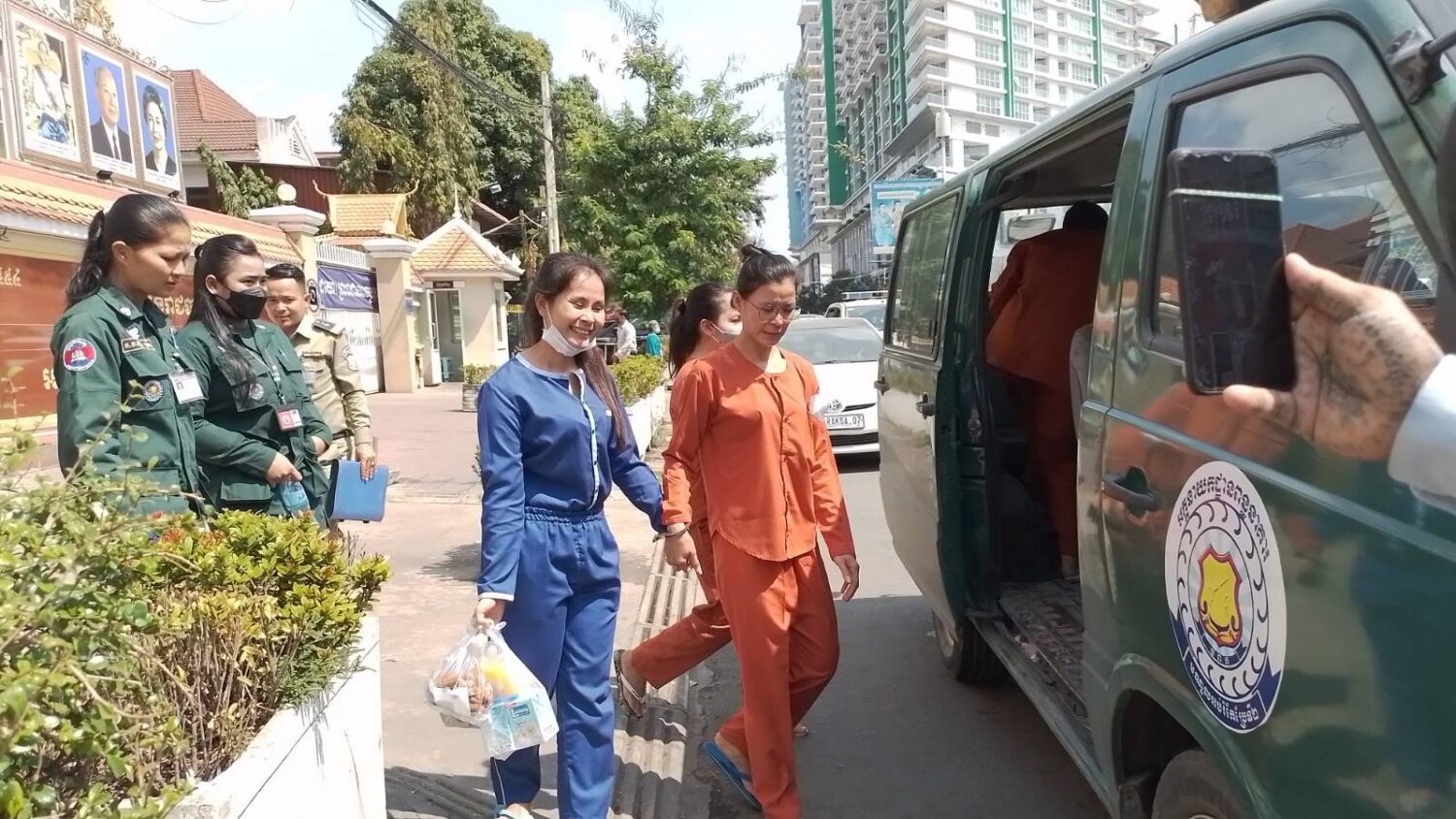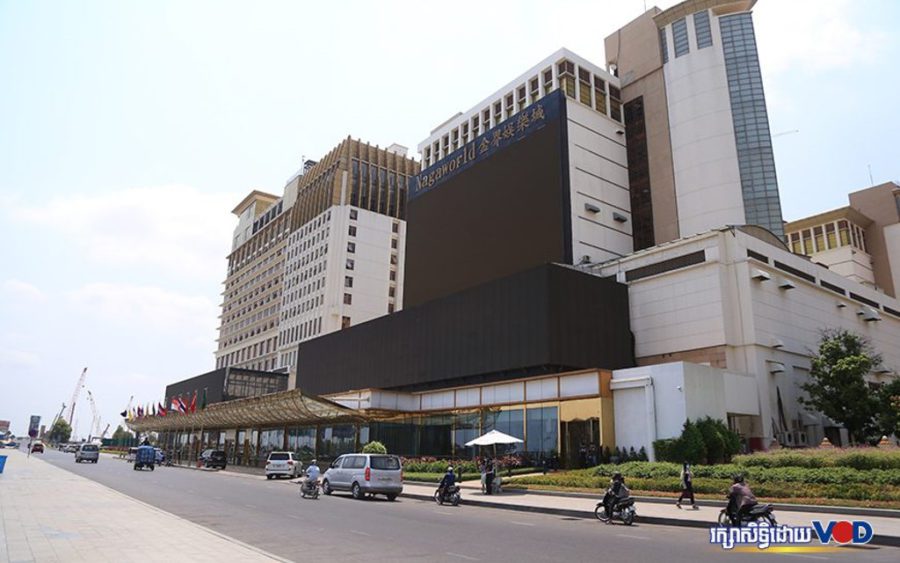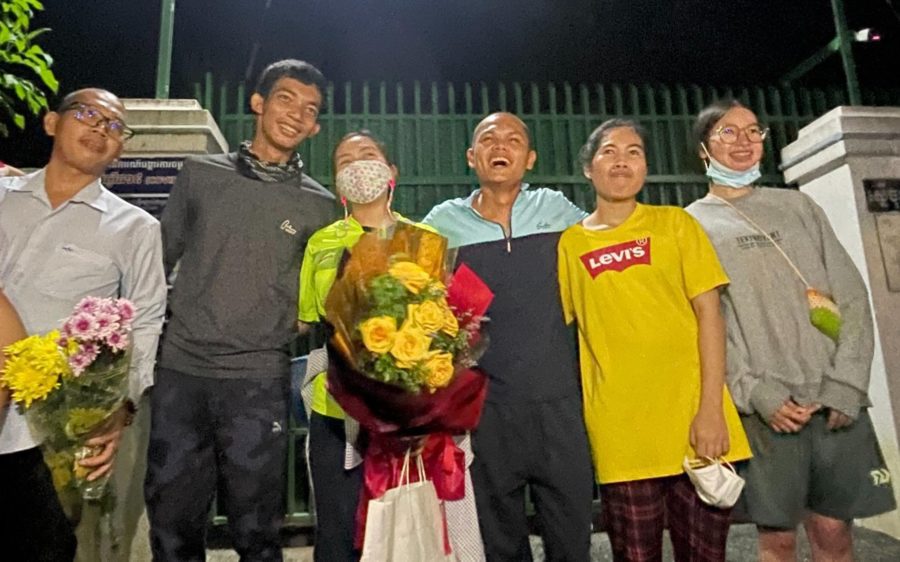Around 8:30 a.m., defense lawyer Hong Chansokha walks up to a prison guard in a courtroom at Phnom Penh’s Supreme Court, asking where his client is.
The guard replies that he couldn’t find him in jail. The guard had asked an official to look him up, but his name didn’t appear. Maybe he was transferred, the guard says.
The lawyer asks if the guard checked all the cells. A court clerk also questions the guard. If the prisoner was transferred, the judge should have a document, the clerk says.
The case involves Mao Sokhun, now aged 36, who was imprisoned 14 years ago in a drug case. The main perpetrator, Lam Sokheng, was sentenced to 40 years in the drug bust — one of the biggest labs raided at the time.
Chansokha points out during the appeal hearing that the charges don’t appear on the Phnom Penh Municipal Court file — only Sokhun’s sentence: 20 years in jail, 30 million riel fine.
The lawyer says Sokhun had previously appealed his sentence, but the Appeal Court made its decision in his absence, and he didn’t find out about the decision for eight years.
As the hearing continues, Chansokha argues that Sokhun was just a lowly worker when the crime was committed in 2007. Several others were also arrested, but most had already been released, Chansokha says.
“Twenty years in prison and a 30 million fine is very serious for a poor worker,” the lawyer says.
Prosecutor Chan Dara Reaksmey asks the court to uphold the previous decisions of the municipal and appeal courts, saying nothing in law absolves a worker if he only followed his boss’s instructions. The prosecutor says there is enough evidence that Sokhun was involved in drug production and trafficking and using a weapon.
The 2007 raid was made after police observed the boss, Sokheng, for a year, the Phnom Penh Post reported at the time. Hundreds of pills, three bags of ketamine and 250 grams of crystal methamphetamine were confiscated, creating fears of high-level drug production and experimentation.
The courtroom moves onto a second drug case, where lawyer Soeung Ratha says his client was not involved in the alleged crime. There was no evidence — no drugs found at his home. There was only the testimony of an accomplice, with whom Than Narath, the accused, had previously been jailed for four years over drugs.
But the old case cannot be linked to the new case, Ratha argues.
Narath, whom guards successfully located in prison and who now takes the stand, pleads his innocence: “I have not committed it. Please drop the charges against me.”
The accomplice, Suy Veasna, is also part of the Supreme Court appeal. Veasna’s lawyer, Yong Panith, asks for a reduction in sentence as Veasna had confessed, accepted his mistakes, and cooperated.
When the judge asks Veasna about Narath, Veasna simply says he sticks to the answer he gave the lower courts.
The courtroom hears a final appeal on Friday morning. Pech Ratana, a lawyer, has been convicted of bribery, though he is not present.
A lower court has previously found that Ratana took $5,000 from a client in 2016 to ask an investigating judge to not detain his client. The client was involved in a land dispute. Ratana was sentenced to five years in jail for bribery, and was only required to serve two years — but the lawyer has not spent time in jail, the Supreme Court hears.
Prosecutor Dara Reaksmey says there is a voice message from Ratana to a client to take money to hand to the judge.
Panith, who is also defending Ratana, says there isn’t enough evidence: Maybe the lawyer was simply taking money from the client to post bail, he argues.
In the afternoon, prisons spokesperson Nuth Savna said by phone in relation to Sokhun, the first defendant who did not appear, that prisoners don’t go missing, but name spellings can cause confusion.
“For a person to go missing, it is impossible,” Savna says. “It could be administrative issues when typing the name, and some prisoners have a few names.”












